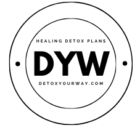
Water is life and death. At 55% (elderly) to 75% (infants) of your body weight, it is the most important nutrient. Again, WATER IS THE MOST IMPORTANT NUTRIENT. Water equals hydration and cleansing, which is vital to life. Too little hydration causes stagnation, brittleness, and shrinking. So proper hydration affects everything else in our bodies. And that’s lucky for us too, because most toxins can be “flushed” out of the system by upping our water intake.
Here are some things that water can do for you:
- Help relieve and prevent headaches: A simple headache caused from too much salt, sugar, or msg (monosodium glutamate) can be relieved by drinking water.
- Boosts your energy: A heavy meal of starches and meats can be less sedating if you are properly hydrated.
- Decrease the negative affects of sugar: Research has found that 1 teaspoon of sugar inactivates your white blood cells. Pretty crazy right? But water can help dilute these affects.
- Improve your mood: In a recent study a group of exercising college students were deprived of water and reported feeling not just thirsty, but also tired, angry, confused and depressed.
- Lubricate the joints: Drinking water helps you move more easily by lubricating cartilage and easing joint pain.
- Water increases your immunity: Water is necessary to produce lymph which carries white blood cells through the blood and helps fight disease.
- Prevents constipation: Since water flushes the system, it helps the colon remove waste and prevent the stagnation which releives bloat and discomfort.
- Suppress your appetite: Since its common to mistake thirst for hungry, drinking water instead of eating can contribute nicely to a weight loss plan.
- Reduce your risk of cancer: Water was shown to significantly reduce the risk of colon cancer, bladder cancer, and breast cancer.
- Helps oxygenate your blood: Since your blood is 92% water, increasing your water helps carry nutrients and oxygen to your cells.
- Speeds healing: Numerous water fasters (myself included) can attest and the healing power of water only fasting. During a digestive fast, water helps rapidly flushes away waste, facilitating repair and rejuvenation within the body.
- Improvement in Skin. Since skin contains about 30% water, proper hydration contributes to its elasticity and resiliency.
- Decrease risk of chronic illness. Proper hydration has been shown to reduce the occurrence of UTI (urinary tract infections), hypertension or high blood pressure, and heart disease.1
Simply put – if you do nothing else for yourself, just adding more water to your diet helps out tremendously. It is a simple yet powerful way to begin detoxifying your body. If you can get your water in you will be amazed at how much better you’ll feel. It will lessen the strain on your kidneys, skin, liver and colon, which are major detoxification organs.
And for you whiners out there (and I say that lovingly, because some of my best friends are water punks), I don’t want to hear any mumbo-jumbo about having to “go potty” all the time if you drink more water. Yes, that may happen initially, but once your body establishes a new normal of staying hydrated, your bladder will adjust. Not only will you recognize dehydration sooner, you’ll be amazed at how much water you really need to stay hydrated.

So how do you get more water on a daily basis?
#1 Drink More! Duh! Yes, but the old rule of just drinking eight (8), 8 oz glasses daily is out and more is in.
Simple Rule: Divide your weight by 2 and drink that amount of water in ounces at a MINIMUM!
For example: 150lbs/2 =75 oz of water daily.
#2 Drink until your Urine is Clear. If it’s stinky and yellow, drink more water than the above recommendation.
#3 Eat More Raw Fruits and Vegetables. They have more water content and also contain vitamins and electrolytes, which increases hydration. Cooked foods, although pretty delicious, are generally dehydrated.
Did you increase your water and see an improvement? I’d love to know!
1 Water, Hydration and HealthBarry M. Popkin, Kristen E. D’Anci, and Irwin H. Rosenberg

